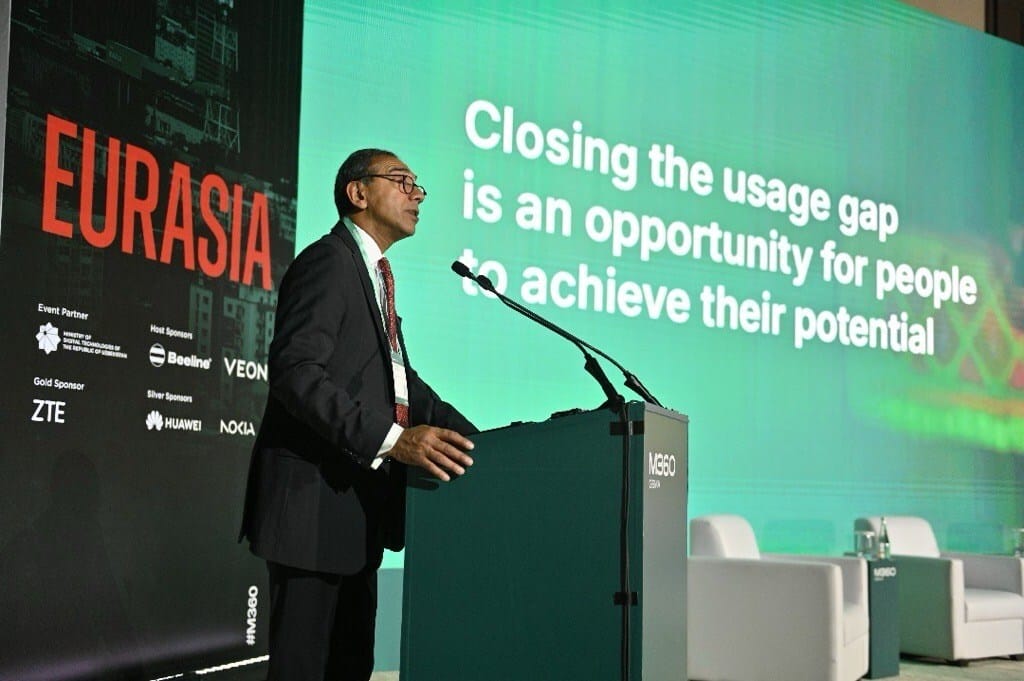Mobile connectivity is solidifying its role as an economic engine in the region, with projections reaching $270 billion by 2030.
The GSMA M360 Eurasia conference has kicked off its 2025 edition in the Uzbek capital, positioning itself as a key meeting point for policymakers, tech leaders, and innovation experts in the mobile ecosystem. The event, organized by GSMA in collaboration with the Uzbekistan Ministry of Digital Technologies and sponsored by Beeline Uzbekistan (a subsidiary of VEON), has focused on the acceleration of digital transformation through 5G, artificial intelligence, and linguistic inclusion.
Connectivity as a Development Axis
In his inaugural speech, Vivek Badrinath, CEO of GSMA, emphasized that connectivity has become an essential tool for economic growth and the modernization of public services in Eurasia. In 2024, mobile technologies already generated 7.7% of the regional GDP, equivalent to $220 billion, and this figure is expected to reach $270 billion by 2030, representing 8.3% of GDP.
The report Mobile Economy Eurasia 2025, published during the event, reveals significant data:
- It is projected that 5G connections will reach 143 million by 2030, accounting for 41% of the total.
- Two-thirds of the population already access mobile internet (164 million users).
- However, 80 million people remain unconnected despite having coverage, highlighting a persistent digital divide.
Kaz-LLM: AI for Low-Resource Languages
One of the milestones of this edition was the presentation of the linguistic model Kaz-LLM, developed by scientific institutions in Kazakhstan and the company QazCode (part of VEON), with support from the Barcelona Supercomputing Center and GSMA Foundry. This AI model can understand and generate content in Kazakh, Turkish, Russian, and English and aims to overcome language barriers in underrepresented languages in AI development.
Partnerships to Accelerate Transformation
In addition to Kaz-LLM, other initiatives led by GSMA Foundry were highlighted:
- A collaboration with IBM to provide GSMA members access to the Watsonx.ai platform.
- Joint projects with the European Space Agency (ESA) in non-terrestrial networks (NTN) aimed at expanding satellite connectivity in remote areas.
A Region with Digital Aspirations
Alan Liew, president of Huawei Cloud in the Middle East and Central Asia—present at the event—supported the region’s role as an emerging hub for digitalization. In this context, the need to integrate AI and 5G in an ethical, inclusive, and sustainable manner was reaffirmed, strengthening infrastructures and removing barriers, both technical and cultural.
Conclusion
GSMA M360 Eurasia 2025 reaffirms the mobile sector’s commitment to a more connected, equitable, and future-ready Eurasia. The event will continue over the coming days with roundtables and technology demonstrations focused on 5G infrastructure, digital inclusion, AI innovation, and technological sustainability, solidifying Tashkent as the epicenter of regional digital advancement.

